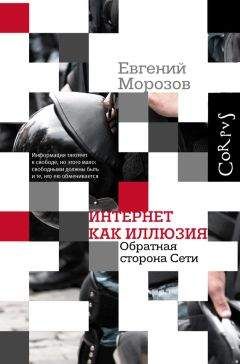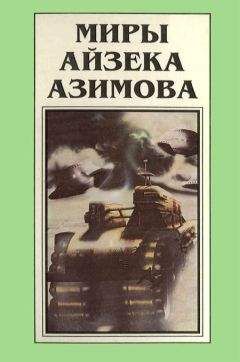Miller, J. Soft Power and State – Firm Diplomacy: Congress and IT Corporate Activity in China // International Studies Perspectives 10, no. 3 (2009): 285–302.
Mite, V. Estonia: Attacks Seen as First Case of “Cyberwar” // Radio Free Europe/Radio Liberty, May 30, 2007.
Morozov, E. More on the Unintended Consequences of DDoS Attacks on Pro-Ahmadinejad Web-sites // Net Effect, Foreign Policy, June 18, 2009. neteffect.foreignpolicy.com/posts/2009/06/18/more_on_the_ unintended_consequences_of_ddos_attacks_on_pro_ahmadine-jad_web_sites.
Morozov, E. U. S. Web Firms Practice Self-Censorship // Newsweek International, March 7, 2009.
Moses, A. Facebook Bans Doll Nipples // Sydney Morning Herald, July 5, 2010.
Mynihan, C. Arrest of Queens Man Puts Focus on Texting to Rally Protesters // New York Times, October 9, 2009.
Nakashima, E. Dismantling of Saudi-CIA Web Site Illustrates Need for Clearer Cyberwar Policies // Washington Post, March 19, 2010.
Noam, E. M. An Unfettered Internet? Keep Dreaming // New York Times, July 11, 1997.
Norris, P. A Virtuous Circle? The Impact of Political Communications in Post-Industrial Democracies / In: Papers for the Annual Meeting of the Political Studies Association of the UK, London School of Economics and Political Science. 2000.
Nye, J. S., Jr. Cyber Power. Cambridge, MA: Belfer Center for Science and International Affairs, Harvard University, 2010.
Obama Bemoans “Diversions” of iPod, Xbox Era // Agence France-Presse, May 9, 2010.
Obama Pushes China to Stop Censoring Internet // National Public Ra-dio, November 16, 2010.
Oboler, A. The Rise and Fall of a Facebook Hate Group // First Mon-day 13, no. 11–3 (2008).
O’Reilly, Tim My Contrarian Stance on Facebook and Privacy // O’Reilly Radar, May 21, 2010. radar.oreilly.com/2010/05/my-con-trarian-stance-on-facebook-privacy.html.
Orlowski, Andrew Google Buys CIA-Backed Mapping Startup // Register, October 28, 2004. www.theregister.co.uk/2004/10/28/ google_buys_keyhole/.
Parks, L. Digging into Google Earth: An Analysis of “Crisis in Dar-fur” // Geoforum 40, no. 4 (2009): 535–545.
Peterson, Chris In Praise of [Some] DDoSs? // Chris Peterson’s blog, July 21, 2009. www.cpeterson.org/2009/07/21/in-praise-of-some-ddoss/.
Prior, Markus Liberated Viewers, Polarized Voters: The Implications of Increased Media Choice for Democratic Politics // Good Soci-ety 11, no. 3 (2002): 10–16.
Prior, Markus Post-Broadcast Democracy: How Media Choice In-creases Inequality in Political Involvement and Polarizes Elections. New York: Cambridge University Press, 2007.
Radsch, C. Core to Commonplace: The Evolution of Egypt’s Blogo-sphere // Arab Media & Society 6 (2008).
Rajadhyaksha, M. Genocide on the Airwaves: An Analysis of the International Law Concerning Radio Jamming // Journal of Hate Studies 5, no. 1 (2010): 99.
Robinson, P. The CNN Effect: Can the News Media Drive Foreign
Policy? // Review of International Studies 25, no. 2 (1999): 301–309. Salmanov, Oleg, and Anastasia Golitsyna Reiman Con-firms New Search Project // Moscow Times, July 8, 2010.
Security Fears over Map Site // Daily Record (Glasgow), December 21, 2005. Senators Announce Formation of Global Internet Freedom Caucus //
John McCain’s Press Office, March 24, 2010.
Sex, Social Mores, and Keyword Filtering: Microsoft Bing in the “Arabian Countries” // OpenNet Initiative, March 4, 2010. opennet.net/ sex-social-mores-and-keyword-filtering-microsoft-bing-arabian-countries.
Shachtman, Noah Exclusive: U. S. Spies Buy Stake in Firm That Mon-itors Blogs, Tweets // Danger Room, Wired.com, October 19, 2009.
www.wired.com/dangerroom/2009/10/exclusive-us-spies-buy-stake-in-twitter-blog-monitoring-firm/.
Sharma, Amol, and Jessica E. Vascellaro Google and India
Test the Limits of Liberty // Wall Street Journal, January 4, 2010. Sheridan, Barrett The Internet Helps Build Democracies //
Newsweek, April 30, 2010.
Stahl, R. Becoming Bombs: 3D Animated Satellite Imagery and the
Weaponization of the Civic Eye // MediaTropes 2, no. 2 (2010): 65. Stanek, Steven Egyptian Bloggers Expose Horror of Police Torture //
San Francisco Chronicle, October 9, 2007.
Talbot, David Bing Dinged on Arab Sex Censorship // Technol-ogy Review Editors’ Blog, March 4, 2010. www.technologyre-view.com/blog/editors/24891/?utm_source=twitterfeed&utm_ medium=twitter.
Turkish Engineers Developing Internet Search Engine // World Bul-letin, November 28, 2009. www.worldbulletin.net/news_detail. php?id=50543.
24 Hours of Video Uploaded to YouTube Every Minute // Agence France-Presse, March 17, 2010.
Vedel, T. The Idea of Electronic Democracy: Origins, Visions and
Questions // Parliamentary Affairs 59, no. 2 (2006): 226. Weintraub, Seth Google to Open ‘Google Ideas’ Global Technol-ogy Think Tank // “Google 24/7” blog, Fortune, August 15, 2010. tech.fortune.cnn.com/2010/08/15/google-to-open-google-ideas-global-technology-think-tank/.
Wilson, Paul IPv6 Answers to Common Questions from Policy Makers, Executives and Other Non-Technical Readers // CircleID, November 8, 2009. www.circleid.com/posts/ipv6_answers_to_most_common _questions_for_non_technical/.
Wong, Albert, and Fanny W. Y. Fung Facebook Questioned as Political Pages Shut Down // South China Morning Post, Febru-ary 6, 2010.
Wood, B. D., and J. S. Peake The Dynamics of Foreign Policy Agen-da Setting // American Political Science Review 92, no. 1 (1998): 173–184.
Worthen, Ben Internet Strategy: China’s Next Generation Inter-net // CIO.com, July 15, 2006. www.cio.com/article/22985/Inter-net_Strategy_China_s_Next_Generation_Internet.
Wright, Robert The Internet vs. Obama // Opinionator Blog, New York Times, February 2, 2010. opinionator.blogs. nytimes.com/2010/02/02/obamas-modern-predicament/.
York, Jillian Facebook Removes Moroccan Secularist Group and Its Founder // Global Voices Advocacy, March 14, 2010. advocacy. globalvoicesonline.org/2010/03/14/facebook-removes-moroccan-atheist-group – and-its-founder/.
Глава 9. Свобода интернета и ее последствия
Трифонов, Владислав ФСБ разыграла “Большую игру”: раскрыт заговор о захвате власти в интернете // Коммерсант. 11 августа 2009 года.
Alexseev, M. A. Majority and Minority Xenophobia in Russia: The
Importance of Being Titulars // Post-Soviet Affairs 26, no. 2 (2010): 89–120.
Allen-Mills, Tony Mexican Drug Gangs Take Their Turf Wars onto
YouTube // Times of London, April 15, 2007.
Allnutt, Luke Twitter Doesn’t Start a Revolution, People Do //
Christian Science Monitor, February 8, 2010.
Amer, Pakinam Muslim Brotherhood Use New Media to Document
History // Al-Masry Al-Youm, February 23, 2010. www.almasry-alyoum.com/en/news/ muslim-brotherhood-use-new-media-doc-ument-history.
Anderson, Benedict Imagined Communities: Reflections on the
Origin and Spread of Nationalism. London: Verso, 1991. Apodaca, C. The Whole World Could Be Watching: Human Rights and the Media // Journal of Human Rights 6, no. 2 (2007): 147–164.
Armony, Ariel C. The Dubious Link: Civic Engagement And De-mocratization. Stanford, CA: Stanford University Press, 2004.
Arshad, Arlina Desperate Indonesians Sell Organs Online // Agence
France-Presse, December 17, 2009.
Auten, B. J. Political Diasporas and Exiles as Instruments of State-craft // Comparative Strategy 25, no. 4 (2006): 329–341.
BÄck, H., and A. Hadenius Democracy and State Capacity: Ex-ploring a Jshaped Relationship // Governance 21, no. 1 (2008): 1–24.
Baldauf, Scott Can Kenya Stop Violence After Vote? // Christian Science Monitor, January 2, 2008.
Balkin, Jack M. Information Power: The Information Society from an Antihumanist Perspective / Social Science Research Network eLib-rary (2010). papers.ssrn.com/sol3/papers.cfm?abstract_id=1648624.
Bangre, Habibou Kenya: SMS Text Messages the New Guns of War? // Afrik-News, February 20, 2008. www.afrik-news.com/ article12629.html.
Bezlova, Antoaneta China: Battle with Tradition Spills into Cy-berspace // Inter Press Service, April 7, 2002.
Billig, Michael Banal Nationalism. Thousand Oaks, CA: Sage, 1995. Blum, B. S., and A. Goldfarb Does the Internet Defy the Law of
Gravity? // Journal of International Economics 70, no. 2 (2006): 384–405.
Brenner, N. Beyond State-Centrism? Space, Territoriality, and Geo-graphical Scale in Globalization Studies // Theory and Society 28, no. 1 (1999): 39–78.
Bunt, Gary R. iMuslims: Rewiring the House of Islam. Chapel Hill: University of North Carolina Press, 2009.
Burstein, A. Jefferson’s Rationalizations // William and Mary Quar-terly 57, no. 1 (2000): 183–197.
Cambodia Lambast Google Earth for Locating Temple in Thai Soil // Nation/Asia News Network, February 10, 2010. www.asiaone. com/News/Latest+News/Asia/Story/A1Story20100210–197804. html.
Castells, Manuel The Internet Galaxy: Reflections on the Internet, Business, and Society. Oxford: Oxford University Press, 2003. Chan, B. Imagining the Homeland: The Internet and Diasporic Dis-course of Nationalism // Journal of Communication Inquiry 29, no. 4 (2005): 336.
Craig, G. A. The Professional Diplomat and His Problems, 1919–1939 // World Politics: A Quarterly Journal of International Relations 4, no. 2 (1952): 145–158.
Currion, Paul Better the Devil We Know: Obstacles and Opportuni-ties in Humanitarian GIS // Humanitarian.info, January 25, 2006. www.humanitarian.info/humanitarian-gis/.
Currion, Paul Correcting Crowdsourcing in a Crisis // Humanitarian. info, March 30, 2009. www.humanitarian.info/2009/03/30/correcting-crowdsourcing-in-a-crisis/.
Cyber-Nationalism: The Brave New World of E-hatred // Economist, July 24, 2008.
Dahlberg, L. Rethinking the Fragmentation of the Cyberpublic: From Consensus to Contestation // New Media & Society 9, no. 5 (2007): 827.
Dewan, Shaila Chinese Student in U. S. Is Caught in Confrontation // New York Times, April 17, 2008.
Doppelt, G. What Sort of Ethics Does Technology Require? // Journal of Ethics 5, no. 2 (2001): 155–175.
Edmunds, A., and A. Morris The Problem of Information Over-load in Business Organisations: A Review of the Literature // International Journal of Information Management 20, no. 1 (2000): 17–28.
Eriksen, T. H. Nations in Cyberspace. Short version of the 2006 Er-nest Gellner Lecture, delivered to the ASEN conference, London School of Economics, March 27, 2006.
Eriksson, J., and G. Giacomello Who Controls the Internet? Beyond the Obstinacy or Obsolescence of the State // International Studies Review 11, no. 1 (2009): 205–230.
Eriksson, J., and G. Giacomello The Information Revolution, Security, and International Relations: (IR) Relevant Theory? // In-ternational Political Science Review/ Revue internationale de science politique 27, no. 3 (2006): 221.
Eriksson, J., and M. Rhinard The Internal-External Security Nexus: Notes on an Emerging Research Agenda // Cooperation and Conflict 44, no. 3 (2009): 243.
Evers, C. The Cronulla Race Riots: Safety Maps on an Australian
Beach // South Atlantic Quarterly 107, no. 2 (2008): 411. Feenberg, A. Democratizing Technology: Interests, Codes, Rights //
Journal of Ethics 5, no. 2 (2001): 177–195.
Feenberg, A. Subversive Rationalization: Technology, Power, and Democracy // Inquiry 35, no. 3 (1992): 301–322.
Finel, B. I., and K. M. Lord The Surprising Logic of Transparency //
International Studies Quarterly 43, no. 2 (1999): 325–339. Fukuyama, F. Social Capital and Development: The Coming Agenda //
SAIS review 22, no. 1 (2002): 23–38.
Giridharadas, Anand Ushahidi – Africa’s Gift to Silicon Valley:
How to Track a Crisis // New York Times, March 12, 2010. Glionna, John M. Korea Activists Target Foreign English Teachers //
Los Angeles Times, January 31, 2010.
Goble, Paul Circassians Using Internet to End Soviet-Imposed Divi-sions in Advance of 2010 Census // Georgiandaily.com, January 8, 2010. georgiandaily.com/index.php?option=com_content&task= view&id=16365&Itemid=134.
Goble, Paul Russian Nationalists Now Mapping Location of Immi-grants in Major Cities // Window on Eurasia, June 5, 2008. windo-woneurasia.blogspot.com/2008/06/window-on-eurasia-russian-nationalists.html.
Goble, Paul Will the Internet Integrate the Russian Federation – or Tear It Apart? // Moscow Times, April 16, 2009.
Goggin, G. SMS Riot: Transmitting Race on a Sydney Beach, Decem-ber 2005 // M/C Journal 9, no. 2206 (2008): 28.
Google Admits “Mistake” of Wrong Depiction of Arunachal // The Times of India, August 8, 2009.
GuillÉn, M. F. Is Globalization Civilizing, Destructive or Feeble? A Critique of Five Key Debates in the Social Science Literature // An-nual Review of Sociology 27 (2001): 235–260.
Hancocks, Paula Facebook Gets Caught in Golan Heights Dis-pute // CNN.com, September 21, 2009. edition.cnn.com/2009/ TECH/09/21/israel.syria.facebook/index.html.
Hanson, Elizabeth C. The Information Revolution and World Politics. Lanham, MD: Rowman & Littlefield, 2008.





